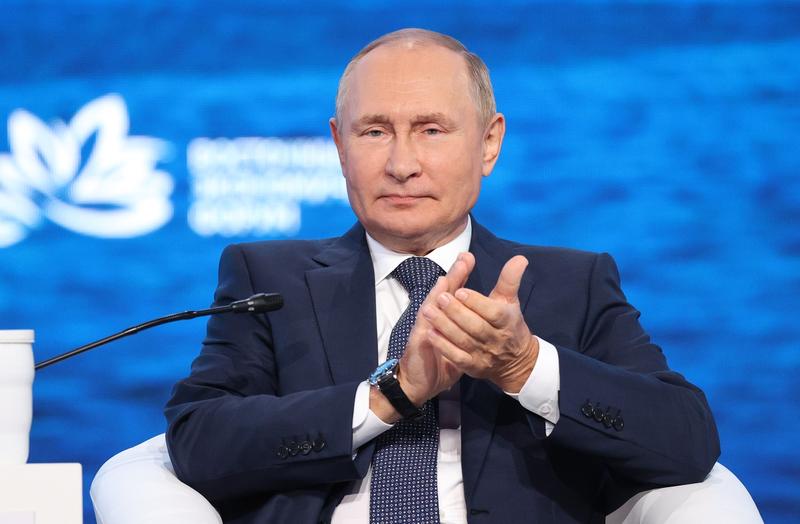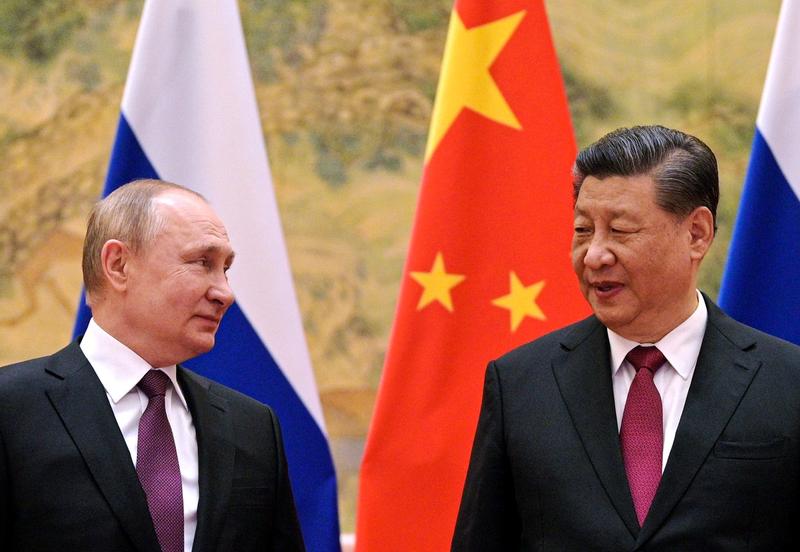
Autumn is approaching and winter is approaching, and problems are piling up for Russia after the Ukrainian counterattack two hundred days after Moscow invaded the neighboring country.
Ukrainian counteroffensive and Russia’s problems / The need for a great victory before winter
The start of the Ukrainian counteroffensive in the east of the country opens up difficult scenarios, and this time Moscow is on the side of the retreating attacker, not the fierce defender, as autumn and winter are gradually approaching, which often begin to make themselves felt in the Sarmatian regions at the end of October, Inside Over writes.
Today, Russia’s goal is to stop the Ukrainian counteroffensive and achieve a major breakthrough before mud and ice block the prospect of advancement.
But troops sent by Russian President Vladimir Putin to Ukraine continue to conduct pointless offensive operations around Donetsk and Bakhmut instead of focusing on defending against a Ukrainian counteroffensive that continues to advance on Kharkiv, the Institute for the Study of War said in an analysis Sunday morning. .
All these senseless actions of the Russian troops seem “robotic” and far from the “realities” of the front.

Ukraine captured a huge number of 152-mm shells left by the Russians in Kharkiv (video)
Crisis fronts for Moscow
The situation is not rosy for Vladimir Putin and his power entourage, as the counterattack window for Ukraine’s offensive is narrowing and the onset of the rainy season, with its associated mud, portends a military stalemate. Russian leaders see the space for moves of high strategic value shrinking by the end of 2022.
It is also a bad situation for the diplomacy of the country, which has found itself in a dangerous position, cornered by Europe and the United States as a partner and perceived by them as an economic rival, which intends to wage a war of nerves and sanctions together.
A war in which the best weapon Russia can use is blocking energy supplies to Europe would, in the light of recent data, be anything but good for the country’s economy, which was already forced to burn through a trade surplus over the summer.
And in general, the situation is unlikely to be favorable for the population if the damage to the national system continues, as predicted by the data of the Ministry of Finance and the Ministry of Economic Development about the consequences of sanctions.
The economy is in trouble
The Russian Statistical Office released the latest data for January-June 2022, noting that industrial production in June 2022 fell by 1.8% compared to June last year, and freight traffic fell by 5.8%. The volume of retail trade fell by almost 10%. Inflation was 15.9%.
Real incomes of the population in the first half of 2022 compared to the first half of 2021 fell by 0.8%.
“The Ministry of Economic Development of Russia,” notes the Gis Report, “predicts that in 2022 and 2023 the country’s economy will shrink by 4.2% and 2.7%, respectively, and growth will resume only in 2024 (by 3.7%),” more optimistic estimates than in the Central Bank of Russia, headed by Elvira Nabiullina.
Mobilization or military economy? / Reconversion of industry has already become a reality
The scenario for the country led by Vladimir Putin is further complicated by the fact that on several sides, numerous officers, former officers or military analysts, as well as Kremlin propagandists, are pressuring him to order a general mobilization of troops and formalize this declaration. the war against Ukraine, which exists today only in fact thanks to the outdated rhetoric of a military special operation.
Such a perspective should be seen as far-fetched and problematic for the entire architecture of Putin’s consensus, which primarily fears that anti-war rhetoric will spread to large cities, primarily Moscow and St. Petersburg, whose citizens were largely spared. , until now, involvement in the complex campaign in the east of Ukraine.
Russia may rather seek an alternative solution, such as increased mobilization of the industrial apparatus for military purposes, which is combined with a refusal to mobilize the national population in general.
Industrial transformation is already a reality in many sectors.
Struggle for power and internal struggle
The country’s severe socio-economic inequality and the aggressive nature of Western sanctions have led many analysts to believe that US and EU aggression against its economy will lead to Russia’s collapse.
Russia’s military failures in the war with Ukraine are fueling opposition to President Vladimir Putin, according to two local politicians who oppose him.

Russian President Vladimir Putin at the Eastern Economic Forum in Vladivostok Photo: Serhiy Bobilyov / Sputnik / Profimedia
The lack of a quick victory, the inability to capture Kyiv and now Ukraine’s successful counteroffensives, while Russia has lost so many troops and so much equipment, has created anger and resentment that Putin’s opponents are trying to exploit. This is according to a report by the American channel CNN.
“There is a point when both liberals and warmongers can have the same goal. That goal may be for Putin to resign,” Dmytro Palyuga, a politician from Putin’s hometown of St. Petersburg, was quoted as saying by CNN. A local politician publicly calls for the impeachment procedure of the president.
“Even Russian propaganda cannot hide that the army [rusă] will be defeated in Ukraine,” says Palyuga.
The lack of serious reaction, even to criticism from lower government officials, is currently unusual.
Palyug sees his personal success primarily in the reaction of the population. Since he first appealed to parliament to impeach Putin, he says he has received many expressions of support. In them, citizens promised to pay fines and even offered to hide him in case of need.
Reduction of influence in the region
Analysts say Russia’s failures in Ukraine, along with international ostracism and crippling sanctions, have opened a political Pandora’s box, as demonstrated by renewed fighting in Nagorno-Karabakh this week.
“Weakened in Ukraine, Moscow has been extremely reluctant to intervene directly outside of its peacekeeping mission in Nagorno-Karabakh,” Kevork Oskanian, a lecturer at Britain’s University of Exeter, told Al Jazeera.
- Read also: Putin’s big bet. How Russia is trying to redraw the world power map together with China
- Putin cannot achieve his goals in Ukraine – the head of US military intelligence

Vladimir Putin and Xi Jinping Photo: Oleksiy Druzhinin / AP – The Associated Press / Profimedia
Some observers believed that Russia’s military actions in Ukraine only increased the diminution of Russian influence in the former Soviet republics, which had already begun to weaken.
“The process started earlier and only became more noticeable. They felt that Russia is not the undisputed leader in their regions, and they are shaping their policies according to the reality,” Serhii Bizyukin, an exiled opposition activist from the western Russian city of Ryazan.
Others compare the war in Ukraine to the Soviet-Afghan conflict of 1979-89 and the role it played in the collapse of the former Soviet Union.
“All this shows the action of centrifugal forces, as it was after the defeat of the USSR in Afghanistan,” Nigara Hiduitova, an exiled opposition leader from Uzbekistan, told Al Jazeera.
According to her, Russia’s weakness in Ukraine caused processes similar to those that led to the collapse of the USSR.
“I think that the same fate awaits Russia,” Hiduitova said.
Sources: Inside Over, ISW, CNN, Al Jazeera
Source: Hot News RO
Robert is an experienced journalist who has been covering the automobile industry for over a decade. He has a deep understanding of the latest technologies and trends in the industry and is known for his thorough and in-depth reporting.